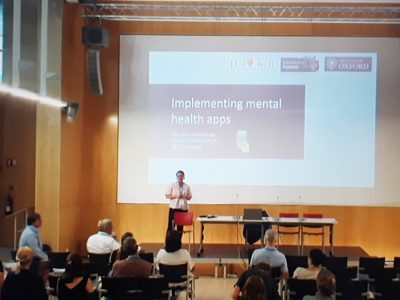Social media use in youth: ¿Does social media use harm Teenagers?
Social media use in youth: ¿Does social media use harm Teenagers?


Recently, great controversy has arisen regarding the effects of time spent on social media on life satisfaction among adolescents. A recent report from the Royal Society for Public Health and the Young Health Movement has suggested that the use of Instagram, Facebook, Snapchat and Twitter increases feelings of inadequacy and anxiety in teenagers from 14 to 24 years old. Others have said it has positive effects, including helping young people to socialise and find support.

According to a recent study from Oxford University, it´s not a matter of how much time youth spends online when it comes to wellbeing but of how youth is using online resources. Moreover, other factors as who is more or less vulnerable because of backgrounds factors.
This study analysed UK data from 12,500 adolescents aged 10-15 and has concluded that “99.75% of a young person’s life satisfaction across a year has nothing to do with whether they are using more or less social media”. They carried out more than 2,000 different analyses to look at the data in slightly different ways, in order to probe the impact of taking into account a variety of factors including aspects of the children’s home life. They criticized previous studies for comparing data between different children without looking if social media use was actually driving negative feelings or vice versa.
According to researchers, future research should examine if particular aspects of online behavior have negative impacts on mental health, such as looking at potentially harmful pages or posts. Moreover, future research should analyze who is more “vulnerable” to social media use. In this sense, personalization of mobile apps as well as the availability of empirically based mobile apps to provide tools and resources to teenagers could provide a valid solution.
Sources:
Oxford study: https://www.nature.com/articles/s41562-018-0506-1?mod=article_inline
https://www.rsph.org.uk/our-work/policy/wellbeing/new-filters.html


